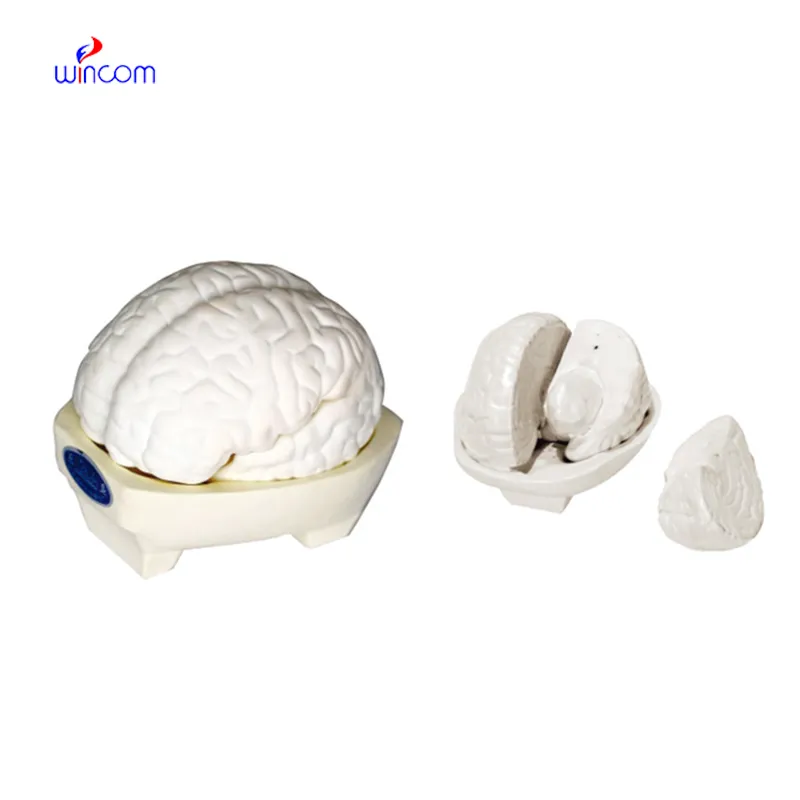
Developed from the use of sophisticated superconducting magnets, the mri head scan machine produces stable magnetic fields that create clear and unblurred images. Patient comfort during scanning is provided with noise reduction systems in the mri head scan machine. Automated positioning and high-speed data acquisition functions are included in the mri head scan machine to provide an effective workflow in clinical settings.

In gynecology and obstetrics, the mri head scan machine facilitates observation of the reproductive organs and fetal development monitoring. It is used in diagnosis of such conditions as fibroids, endometriosis, and congenital defects of the uterus. The mri head scan machine provides precise and high-resolution images without harming either the mother or the fetus.

The mri head scan machine will be enhanced by quantum sensor technology and high-temperature superconducting magnets to generate more intense but more stable magnetic fields. This will allow imaging more quickly and with less energy. The mri head scan machine will also have more functional imaging capability for the investigation of brain connectivity and metabolic processes.

Keeping the mri head scan machine in good shape guarantees stable imaging and long life. Technicians should follow factory-established service intervals, review system diagnostics, and perform safety interlock testing. The mri head scan machine should also be inspected for abnormal vibrations or sound patterns indicative of component failure.
The mri head scan machine is a very sophisticated medical imaging device that employs powerful magnetic fields and radio waves to create accurate images of the body's internal organs. It is employed widely to scan the brain, spine, joints, and soft tissues without exposing patients to radiation. The mri head scan machine provides high-contrast images to allow physicians to detect tumors, injuries, and neurological diseases with very high accuracy.
Q: What are the main components of an MRI machine? A: The main components include a superconducting magnet, radiofrequency coils, gradient coils, a patient table, and a computer system for image reconstruction. Q: Can MRI detect early signs of disease? A: Yes, MRI can identify early changes in tissues such as inflammation, lesions, and tumors, allowing for timely diagnosis and treatment planning. Q: Why is it important to stay still during an MRI scan? A: Movement during scanning can blur the images, making it harder to capture accurate details. Patients are asked to remain still to ensure sharp, diagnostic-quality images. Q: Are MRI scans painful or uncomfortable? A: MRI scans are painless, but some patients may experience discomfort from lying still or hearing loud scanning noises, which can be reduced using ear protection. Q: Can MRI be used for cardiac imaging? A: Yes, MRI is commonly used to evaluate heart function, blood flow, and structural abnormalities without invasive procedures or ionizing radiation.
The centrifuge operates quietly and efficiently. It’s compact but surprisingly powerful, making it perfect for daily lab use.
The hospital bed is well-designed and very practical. Patients find it comfortable, and nurses appreciate how simple it is to operate.
To protect the privacy of our buyers, only public service email domains like Gmail, Yahoo, and MSN will be displayed. Additionally, only a limited portion of the inquiry content will be shown.
We’re currently sourcing an ultrasound scanner for hospital use. Please send product specification...
We’re looking for a reliable centrifuge for clinical testing. Can you share the technical specific...
E-mail: [email protected]
Tel: +86-731-84176622
+86-731-84136655
Address: Rm.1507,Xinsancheng Plaza. No.58, Renmin Road(E),Changsha,Hunan,China